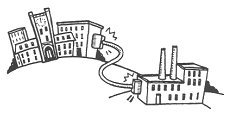
The CLC believes that the public education system should be the primary and preferred means of training delivery. The Congress has developed a policy and a Protocol on the Delivery of Training, Education and Employment Services (The CLC Executive Council adopted this in June, 1998.)The Protocol says:
We believe that public institutions should be the primary deliverer and preferred means of training, education and employment services. Funds must be made available to ensure the continuing strength of public education institutions and government programs in these areas.

To link your basic skills program with public education, contact the public education instructors' unions in your area. They are the key link between your union and the community colleges and school boards.
Many unions have facilities where they have developed their own models for delivering training. Some building trades unions have been active in training for over 150 years. Unions representing college and school board instructors have only just begun to develop links with unions which need literacy programs. These links are a crucial part of developing successful partnerships.
Developing a partnership between a union-negotiated program and a public education institution is not always easy. Public institutions have to become more attuned to the needs of unions. Unions want flexibility from colleges and boards about when and where programs are delivered, labour content of programs, the costs and who does the teaching. Many unions view peer instructors as an essential part of any program.
Here are some examples of union links with public education:
Unions have to fight to maintain and expand public schools, colleges and universities, particularly for programs like adult basic education. At the same time, labour educators and peer or union member instructors play an important role in literacy and basic skills programs. Union educators can create a critical bridge between union programs and those offered by community colleges and school boards.